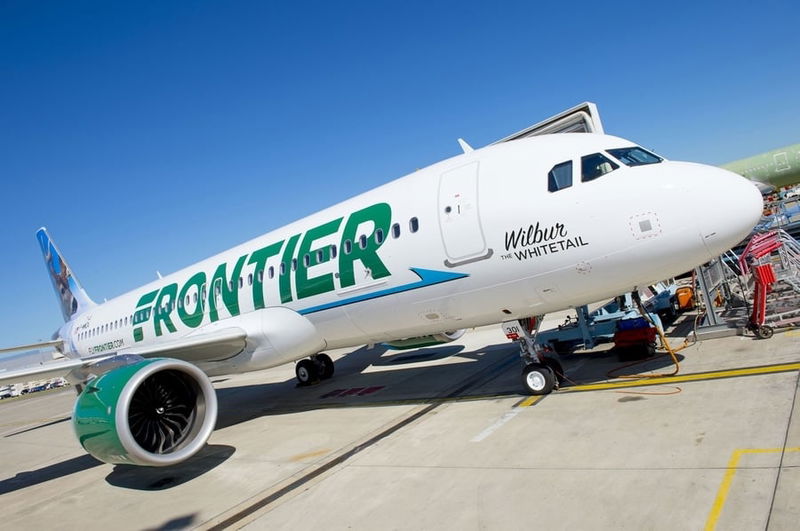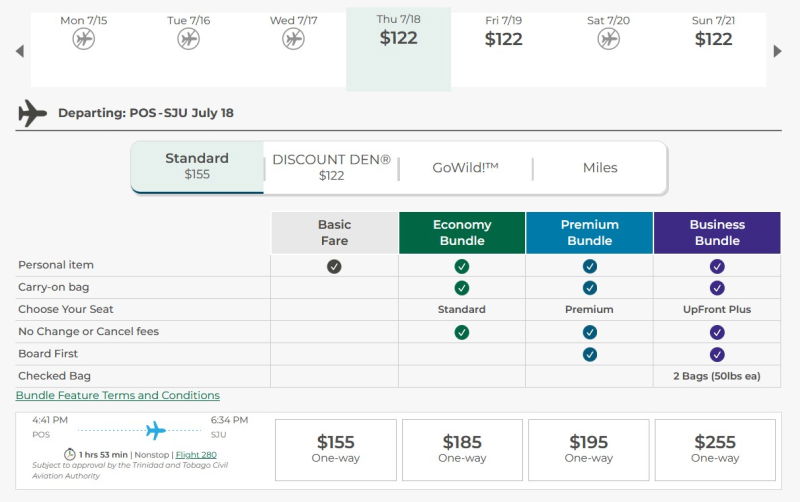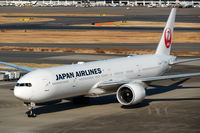Frontier Airlines Unveils Clearer Pricing Structure

Featured image: Airbus
For a long time, Frontier Airlines has consistently ranked as one of the worst airlines to fly on in the United States. Typical complaints range from flights being consistently delayed, poor customer service, uncomfortable seating and an unclear fee structure.
Effective immediately, Frontier has introduced four major changes that it hopes will slowly improve its poor brand reputation.
Transparent pricing
Previously, Frontier would advertise the basic fare and offer a few bundles. However it wasn’t clear at the start what was included in these bundles unless you did a bit of reading. I wouldn’t say it was the hardest system to use, but it definitely wasn’t the best presented either.
They’ve since switched to a table format, and have updated the bundle structure to now offer four categories, including Basic Fare, Economy Bundle, Premium Bundle and Business Bundle.
| Basic Fare | NEW Economy Bundle | NEW Premium Bundle | NEW Business Bundle | |
|---|---|---|---|---|
| Personal Item | Included | Included | Included | Included |
| Carry-on Bag | For purchase | Included | Included | Included |
| Board First | For purchase | For purchase | Included | Included |
| Choose Your Seat | For purchase | Included – Standard | Included – Premium | Included – UpFront Plus |
| Checked Bags | For purchase | For purchase | For purchase | 2 bags 50 lbs each |
| No Change/Cancel Fee | N/A | Included | Included | Included |
| Bundle prices starting from (per person, per direction) | N/A | From $30 | From $50 | From $100 |
Here’s an example of that fare structure in a real world example. From the get go, we know that Frontier likes this rope customers in with cheap, attractive fares in the hopes of getting them to pay for perks later on, but at least now it’s clearly laid out, so you know exactly what you are paying for if you choose to add additional perks.

No change and cancellation fees
Frontier is now doing away with change and cancellation fees for those booked with an Economy, Premium, or Business bundle. I was somewhat surprised by this move given that Frontier thrives on earning revenue from ancillary fees, but it’s hard to ignore competition when Southwest, Delta, United and American also ditched change fees after the pandemic.
Nonetheless, it’s still a win for the consumer, but travelers should still be aware that they will be required to pay the fare difference if they choose a more expensive ticket.
‘For Less’ Price Guarantee
This somewhat ties in to the above point. If customers can find a cheaper Frontier flight on the same day operating the same route, the carrier will award 2,500 addition Frontier Miles after the flight has been completed.
Sounds too good to be true, right? If you think you could show them a cheaper fare six months from now, think again. Two of the conditions require that cheaper fares be found within 48 hours, with the airline’s agents being able to replicate the same fare reduction.
- The lower price must be found within 48hrs after booking on Frontier and must be submitted prior to midnight on the day before travel on Frontier.
- A Frontier agent must be able to replicate the lower rate found.
I’m sure the airline will actively be monitoring its pricing system to prevent travelers from taking advantage of this.
Customer service improvements
Frontier has increased the validity of flight credits issued on or after May 17, 2024 from three to twelve months. They have also re-introduced live phone support for customers within 24 hours of their flight or to those with Elite status.
They also plan to improve their mobile app and website to offer better planning features, and will better utilize channels like SMS and email to keep customers in the loop regarding any changes to their flight’s status.
My take
Frontier may not be my go-to airline, but these changes are a good step in the right direction. I am most impressed with the layout of their pricing structure being much more simplified. Is this a pre-emptive change to meet the requirements of the US Department of Transportation’s new rule requiring that airlines properly disclose fees associated with ticket prices and bundles? Who knows.
In a statement, the DOT said, “this will help consumers avoid unneeded or unexpected fees that can increase quickly and add significant cost to what may, at first, look like a less expensive ticket.”
The new rule is set to go into effect in July, but that date may change as a number of U.S. airlines have filed lawsuits. These airlines and lobbying groups claim that the new rule will only further confuse customers, and feel that the DOT is attempting “to regulate private business operations in a thriving marketplace is beyond its authority.”



